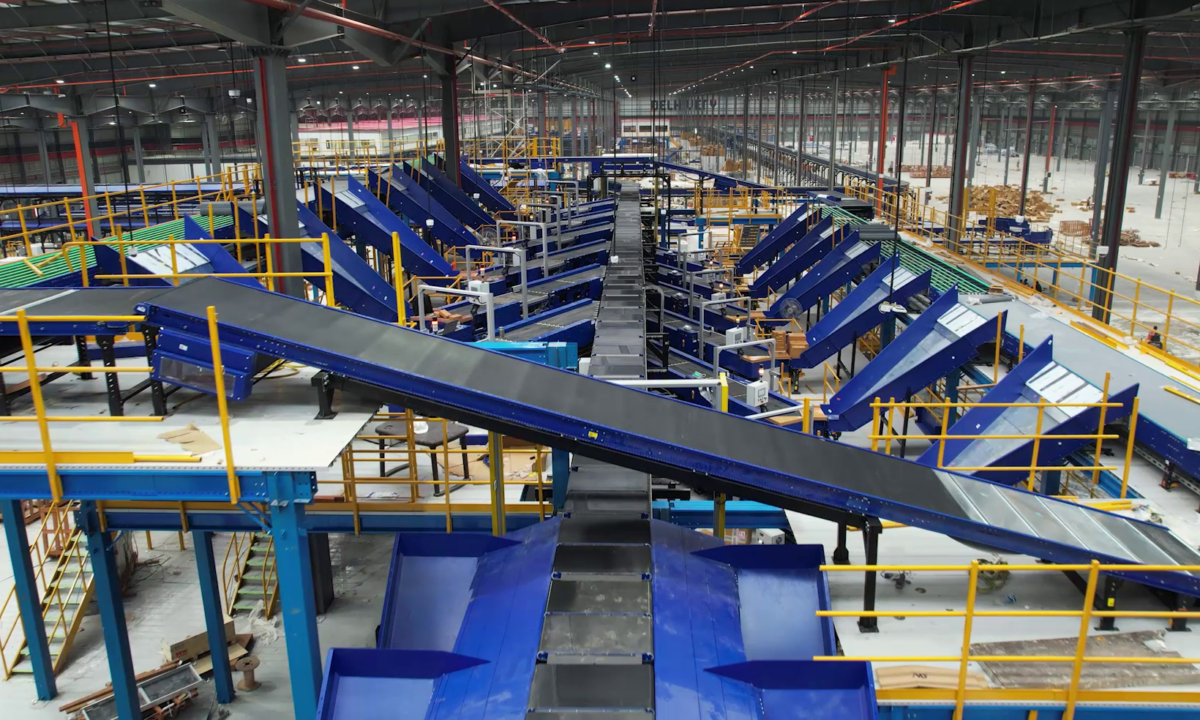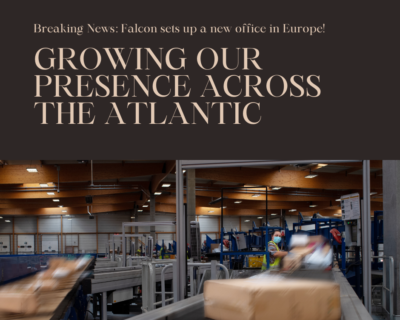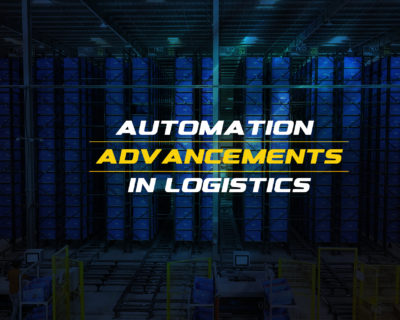Blog

Breaking Barriers and Optimizing Efficiency – Journey of Delivering India’s Largest Sortation System
“It was a bold decision. If it didn’t work, our company would have shut down,” says Naman Jain, founder and CEO of warehouse automation startup Falcon Autotech, referring to a big gamble he had taken more than a decade ago. The year was 2013, Jain and his team were negotiating a deal with a major e-commerce logistics company that had just placed an updated order for a sorter with a capacity of 6,000 parcels per hour. That was 4x the specification earlier agreed upon.
“All the founders came together, and we took a calculated risk,” recalls Jain. At the time, Falcon did not have the technology to develop such sorters, and hence, the said client refused to pay any money upfront and offered to pay the machine’s price in monthly installments. However, there was a caveat: if it failed even once, Falcon would simply take the machine back and refund the entire amount. Falcon’s ‘calculated risk’ paid off. The machine worked flawlessly and was handed over to the parcel company after 36 months. “We are now doing projects worth INR100 crore. That was unthinkable 10 years back,” says Jain.
Falcon Autotech has covered a lot of ground since that big bet. Last month, it installed India’s largest sortation equipment at Delhivery’s biggest trucking terminal and parcel warehouse, built over 1.2 million sq ft, in Maharashtra’s Bhiwandi. The company has set up two sortation machines, one for handling B2B shipments and the other for B2C, with the latter having a capacity of up to 48,000 parcels per hour.
“The automation system is so huge, you will need a bicycle to go from one end of the equipment to the other,” Jain says. It’s a rare feat in automation machinery that few homegrown original equipment manufacturers (OEMs) have achieved. How did Falcon manage it? Humble beginnings In 2012, Falcon started its journey from an under 2,000 sq ft workshop at Mundka in Delhi. Getting the right set of people, training them, and generating the required output was the biggest challenge for the company in its early days. Since warehouse automation was nascent in India, unlike in the US, Japan, or European countries where it had been thriving for decades, there was no readily available talent when Falcon began its operations. But Jain and his team tirelessly worked towards overcoming each hurdle, and two years later, Falcon’s base was shifted to Greater Noida.
Currently, it has four assembly facilities there, spread across 2.5 lakh sq ft. The company, which has more than 80 sorter installations across India, is expected to close FY24 with INR300 crore-plus in top line, up from INR286 crore from a year ago.
Over the years, while the acceptance for made-in-India warehouse-automation hardware has slowly gone up, several challenges remain on the manufacturing side. For one, localised supply chains for electronics continue to be a major pain point. A lot of electronic items go into these machines, most importantly image acquisition cameras, programmable logic controllers (PLCs) which form the brain of the machines like sorters or conveyors, and variable frequency drives (VFDs) which are used to control the speed of motors.
“The ecosystem of these electronics parts in India is weak or non-existent. Thus, we need to import these parts. This increases our costs and puts us in a spot of vulnerability, which we saw in 2021 and 2022 when the prices of electronics skyrocketed,” says Jain.
However, with India’s warehousing industry warming up to the idea of big-ticket investments in automation technologies, it is great news for startups like Falcon that manufacture products locally while catering to the specific needs of customers at competitive price points.
Quality vs. cost
Warehouse automation comprises several components such as sortation machines, conveyor belts, DWS (dimensions and weight-scanning systems), order-picking systems, automated storage, and retrieval systems. But the anchor and most complex product line is the sortation system. These machines sort parcels as per a predetermined configurable logic. To a big extent, they determine the speed at which shipments are processed and moved to trucks to be carried to target destinations.
For e-commerce logistics companies such as Delhivery and Ecom Express, sortation usually makes up for up to 90% of capex outlay in warehouse automation at a fulfilment centre.Ecom Express has installed at least 30 sortation machines across its fulfilment centres. The company works with Falcon and its Pune-based rival Armstrong.
For parcel companies, it is crucial to get these installations done at affordable costs while ensuring reliable and quality standards. “If we were to talk to vendors of the same hardware in the US and Europe, the costs are prohibitive — up to 10x. Given the margins we are operating, it would be nearly impossible to get that kind of infra set-up,” says Choudhary.
As per industry estimates, the installation cost of a sortation system by local vendors with a capacity of 24,000 parcels/hour could be upwards of INR50 crore. Indian OEMs have an edge, especially in terms of cost, quality, and installation time since e-commerce logistics companies need quick scalability to match demand spikes. “When you compare Indian vendors with those in the US, the cost differential is huge while the quality differential is manageable,” he adds.
According to Mr. Choudhary, Indian vendors have matured over the last five-seven years and quality standards have gone up considerably. “When we saw demand spikes in the busy festival season last year, we did close to 6.5 crore shipments without a glitch. Machines were running 24 hours, seven days a week. We didn’t have any downtime or SLA (service level agreement) breaches,” says Choudhary adding that Ecom Express has created capacity to handle seven to eight crore shipments per month.
Clearly, India’s warehousing industry has come a long way. In line with this transformation, Falcon’s Jain points out, the expectations from the industry have also gone up.
The RoI factor
Unlike their western counterparts, Indian e-commerce and logistics companies have abundant labour resources. This means that they have the option to limit technology investments by relying on human intervention for certain processes. In contrast, the appetite of customers for advanced warehouse automation solutions is much higher in developed economies.
Decision making is faster. The way the India market is shaping up, investments in automation are purely from a return-on-investment (RoI) perspective. Adoption of automation solutions could be higher if the period of returns is longer. The smaller the RoI window, the tougher it is to justify the investment. However, a gradual change is underway. “We see that customers are gradually increasing their horizons from three years to four years, because practically, the life of a warehouse-automation machine is 10 years,” Jain says. Over the last few years, while Falcon has made deep inroads into India’s warehousing market, the startup seems to have hit the home run with Delhivery coming onboard. A big boost Big-ticket companies who believe that automation is core to their business are making strategic investments in several companies in the sector.
For instance, in 2022 Mukesh Ambani’s Reliance Industries invested USD132 million in robotics company Addverb Technologies for a 54% stake.
In the same year, Delhivery invested an undisclosed amount in Falcon for a minority stake. By then, the third-party logistics provider was operating 20 automated sortation centres, 124 gateways, and 83 fulfilment centres across India, but given the company’s appetite for future-ready solutions, Falcon is a good bet.
In November last year, Delhivery invested an additional INR52 crore, increasing its stake in Flacon to 39%. Delhivery had been a longstanding Falcon customer, involving big and small projects even before it came in as an investor. The deal is beneficial for both the companies as Falcon will get an anchor orderbook which will allow it to plan its in-house capacities. Further, since the startup largely builds hardware products, it will get access to Delhivery’s live sites where it can try out new technologies, get actual operations feedback, and then improve the product.
From Delhivery’s standpoint, it will get early access to new technologies and have some capacity assurance.The road ahead‘Automation’ is a supporting vertical for the larger umbrella of industry which houses logistics and supply chain. For automation companies which want to scale up, it is a question of vertical vs. horizontal play. While some want to grow big with just an order-picking solution inside warehouses, others would prefer to start with a single solution targeted at a specific problem and scale up further to launch a suite of solutions to take care of end-to-end automation.
Besides sorters, Falcon is betting big on its mobile robots called NEO which was launched last year. These robots, which can move in X and Y directions and also vertically above the racks, are used for automated storage and retrieval in warehouses. Last year, Falcon launched a robotics-tech solution called Goods to Person which brings products to a person in a warehouse.
Also, pallet handling is a big opportunity since the company currently only deals with cartons and individual boxes and automated packaging in warehousing. Like its peers, Falcon is expanding internationally. The company has launched its subsidiaries in Dubai, Australia, and The Netherlands. “We will continue to manufacture in India and export from the country while finding new customers in these markets,” says Jain.
Read the original article here – https://economictimes.indiatimes.com/prime/economy-and-policy/quality-at-low-cost-how-falcon-autotech-overcame-hurdles-to-build-indias-largest-warehouse-sorter/primearticleshow/106934042.cms?from=mdr
Media Contact:
Abhishek Sahu
Marketing Manager
Abhishek@falconautoonline.com
To know about our events, follow us on :
Facebook | LinkedIn | Instagram | Youtube





